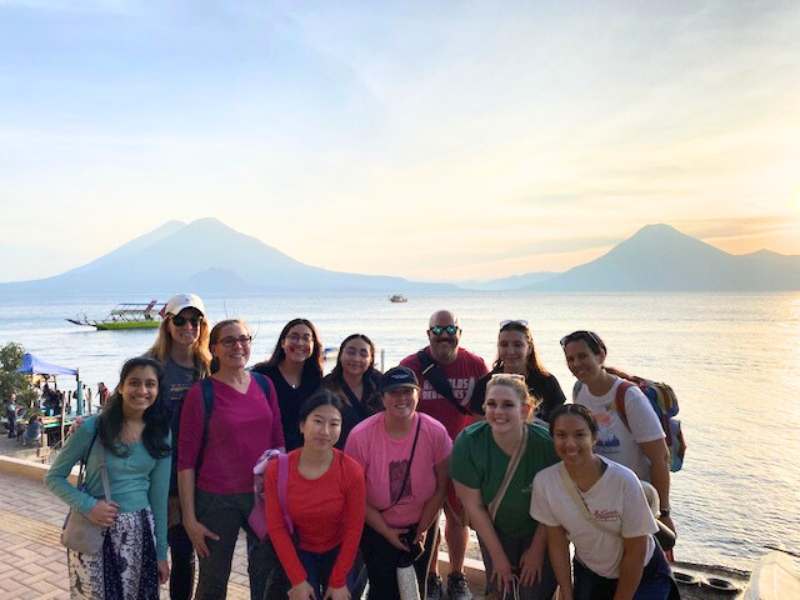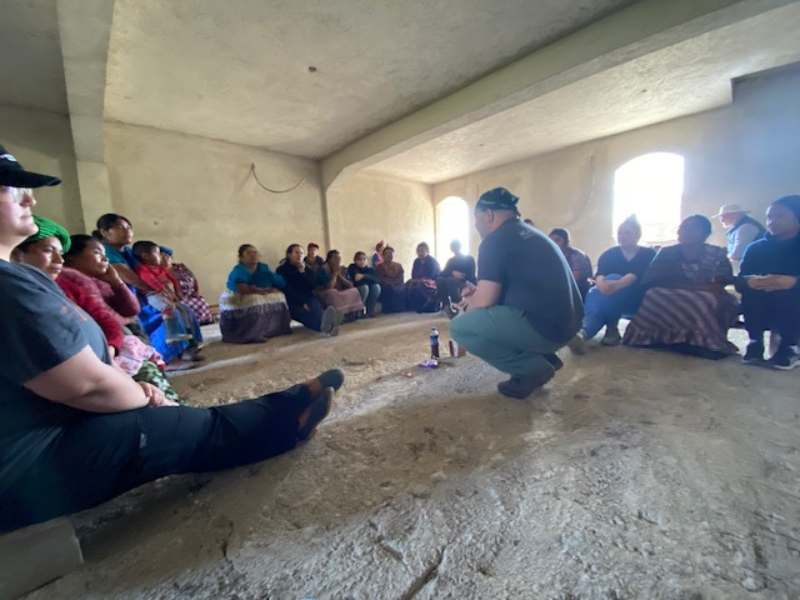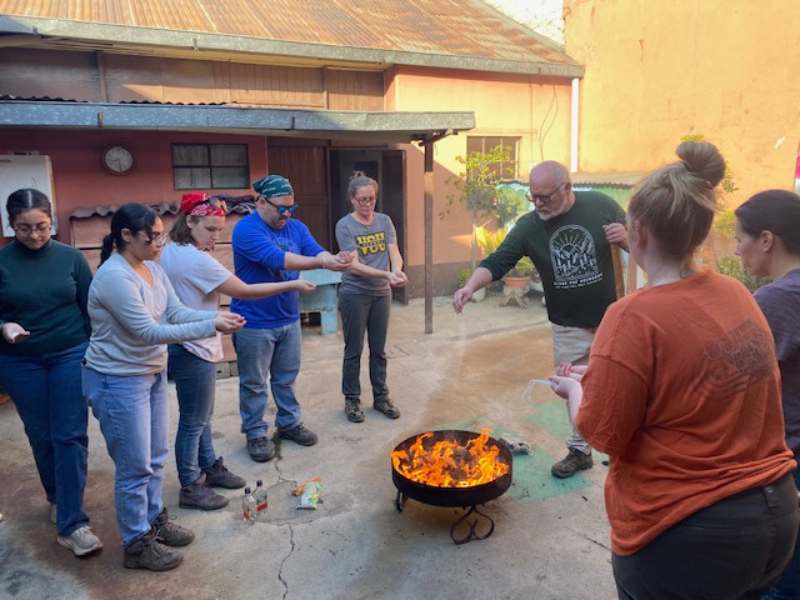Beyond the books
February 26, 2024

In the heart of the Mayan highlands, a group of 10 VCU nursing students took part in a life changing experience from January 6 -13 as participants of the Nursing Students Without Borders (NSWB) program. Led by Amy Burlar, Ph.D., RN, CCRN, CNE and Mary Falk, M.S.N., RN, CCRN, PCCN, CNL, both clinical assistant professors in the Department of Adult Health and Nursing Systems, the week-long service-learning experience made a lasting impression on both the students and the communities they visited.
This year marked the first VCU-sponsored NSWB trip since the onset of the COVID-19 pandemic. Students from the school’s B.S. and D.N.P. programs journeyed to Guatemala to participate in service projects and health promotion initiatives, foster cross-cultural exchange, and deepen their practical comprehension of health challenges.
The trip kicked off by working with rural Indigenous communities to construct stoves to replace the more traditional open pit fires used for cooking. “A typical cooking fire produces about 400 cigarettes worth of smoke in an hour. This hands-on activity can improve the family’s health by decreasing respiratory issues that are prevalent among families who cook with open pit fires in the indigenous communities within the Mayan highlands,” said Falk.

Beyond improving respiratory health for those who are living and cooking in the home, the newly-built stoves help reduce time spent cooking, freeing up time for women who usually perform that task. “Indigenous women who receive a stove will be able to spend less time overall cooking, giving them time back to participate in women’s initiatives with the Highland Support Project, which works to empower and support traditional midwives by providing comprehensive and culturally appropriate training in holistic health care, essential equipment, and practical support,” said Falk.
The trip itinerary also included opportunities for mutual learning. Students and community members shared conversation on health promotion topics, demonstrations of traditional Mayan practices and use of medicinal herbs, and local women's empowerment projects. "One lesson I learned was how important it is to see women helping women, especially in a community where patriarchy is prevalent,” one student shared in a post-trip survey. “Some of the women at the beginning of the week were shy, but after we engaged and asked questions they opened up. By the end of the week they were speaking up for themselves and sharing their thoughts during the nutritional talk.”
From my brief experience, I see that it opens students' eyes to other ways of being. This is fundamental in caring for a diverse population.
Amy Burlar, Ph.D.
For many students on the trip, it was the first time they had encountered a living environment without closed sewage systems or potable water, prompting discussions about potential health implications. “I believe that by gaining this wider worldview, the students better understand their own privileges and have better insight into many of their patients' hardships which have led them to a certain point in their health trajectories. This understanding lends itself to greater empathy and the development of a passion to contribute towards better overall health,” said Falk.
Service learning opportunities like the NSWB experience can profoundly influence students and their future careers as providers. “Given the impact that my travels have had on my own perspective, practice, and life in general, I want to take that experience to the next level by facilitating and guiding others on their journeys,” said Burlar. “It's special to be able to usher some of the younger students on their first international travel experience. I approached the role with a sense of being encouraging, supportive, and making sure the students were safe.”

Faculty in the school are deeply committed to enriching students’ understanding of care delivery. Experiences that cultivate cultural competence and empathy undeniably help mold future nurses into more compassionate and well-rounded practitioners. “From my brief experience, I see that it opens students' eyes to other ways of being. This is fundamental in caring for a diverse population,” said Burlar.
If you would like to support the VCU School of Nursing Travel Fund, please contact Pam Lowe, senior director of development, at (804) 827-0020 or plowe@vcu.edu.